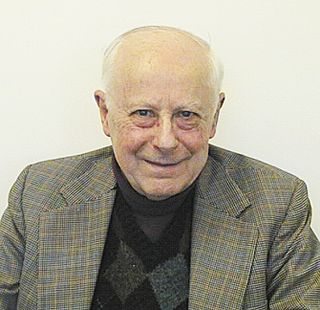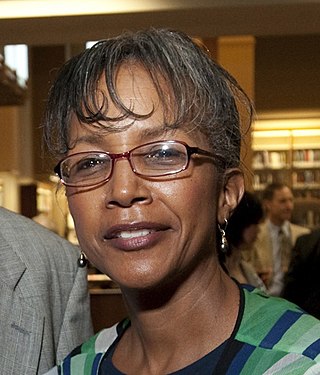Related Research Articles

An oil refinery or petroleum refinery is an industrial process plant where petroleum is transformed and refined into products such as gasoline (petrol), diesel fuel, asphalt base, fuel oils, heating oil, kerosene, liquefied petroleum gas and petroleum naphtha. Petrochemical feedstock like ethylene and propylene can also be produced directly by cracking crude oil without the need of using refined products of crude oil such as naphtha. The crude oil feedstock has typically been processed by an oil production plant. There is usually an oil depot at or near an oil refinery for the storage of incoming crude oil feedstock as well as bulk liquid products. In 2020, the total capacity of global refineries for crude oil was about 101.2 million barrels per day.
In petrochemistry, petroleum geology and organic chemistry, cracking is the process whereby complex organic molecules such as kerogens or long-chain hydrocarbons are broken down into simpler molecules such as light hydrocarbons, by the breaking of carbon–carbon bonds in the precursors. The rate of cracking and the end products are strongly dependent on the temperature and presence of catalysts. Cracking is the breakdown of large hydrocarbons into smaller, more useful alkanes and alkenes. Simply put, hydrocarbon cracking is the process of breaking long-chain hydrocarbons into short ones. This process requires high temperatures.

Percy Lavon Julian was an American research chemist and a pioneer in the chemical synthesis of medicinal drugs from plants. Julian was the first person to synthesize the natural product physostigmine, and a pioneer in industrial large-scale chemical synthesis of the human hormones progesterone and testosterone from plant sterols such as stigmasterol and sitosterol. His work laid the foundation for the steroid drug industry's production of cortisone, other corticosteroids, and artificial hormones that led to birth control pills.

Catalytic reforming is a chemical process used to convert naphthas from crude oil into liquid products called reformates, which are premium "blending stocks" for high-octane gasoline. The process converts low-octane linear hydrocarbons (paraffins) into branched alkanes (isoparaffins) and cyclic naphthenes, which are then partially dehydrogenated to produce high-octane aromatic hydrocarbons. The dehydrogenation also produces significant amounts of byproduct hydrogen gas, which is fed into other refinery processes such as hydrocracking. A side reaction is hydrogenolysis, which produces light hydrocarbons of lower value, such as methane, ethane, propane and butanes.

Fluid catalytic cracking (FCC) is the conversion process used in petroleum refineries to convert the high-boiling point, high-molecular weight hydrocarbon fractions of petroleum into gasoline, alkene gases, and other petroleum products. The cracking of petroleum hydrocarbons was originally done by thermal cracking, now virtually replaced by catalytic cracking, which yields greater volumes of high octane rating gasoline; and produces by-product gases, with more carbon-carbon double bonds, that are of greater economic value than the gases produced by thermal cracking.

Hydrodesulfurization (HDS), also called hydrotreatment or hydrotreating, is a catalytic chemical process widely used to remove sulfur (S) from natural gas and from refined petroleum products, such as gasoline or petrol, jet fuel, kerosene, diesel fuel, and fuel oils. The purpose of removing the sulfur, and creating products such as ultra-low-sulfur diesel, is to reduce the sulfur dioxide emissions that result from using those fuels in automotive vehicles, aircraft, railroad locomotives, ships, gas or oil burning power plants, residential and industrial furnaces, and other forms of fuel combustion.

Honeywell UOP, formerly known as UOP LLC or Universal Oil Products, is an American multi-national company developing and delivering technology to the petroleum refining, gas processing, petrochemical production, and major manufacturing industries.
The National Organization for the Professional Advancement of Black Chemists and Chemical Engineers or NOBCChE is a nonprofit, professional organization. NOBCChE's goal is to increase the number of minorities in science, technology, and engineering fields. The organization accomplishes this by creating bonds with professionals working at science-related companies and faculty at local school districts in order to get more minorities to pursue a career in science and engineering fields. NOBCChE focuses on establishing diversity programs for the professional development of young kids and to spread knowledge in science and engineering. NOBCChE chapters can be found nationwide.
Hydroskimming is one of the simplest types of refinery used in the petroleum industry and still represents a large proportion of refining facilities, particularly in developing countries. A hydroskimming refinery is defined as a refinery equipped with atmospheric distillation, naphtha reforming and necessary treating processes. A hydroskimming refinery is therefore more complex than a topping refinery and it produces gasoline. The addition of catalytic reformer enables a hydroskimming refinery to generate higher octane reformate; benzene, toluene, and xylene; and hydrogen for hydrotreating units. However, a hydroskimming refinery produces a surplus of fuel oil with a relatively unattractive price and demand.

The Indian Institute of Petroleum (IIP), established in 1960, is one of the 37 constituent laboratories of the Council of Scientific and Industrial Research (CSIR), dedicated to R&D in the hydrocarbon sector.

The Gubkin Russian State University of Oil and Gas is a public university in Moscow, Russia. The university was founded in 1930 and is named after the geologist Ivan Gubkin. The university is colloquially known as Kerosinka, meaning 'kerosene stove'.

William C. Pfefferle was an American scientist and inventor.
Vladimir Haensel was an American chemical engineer who invented the platforming process - a platinum catalytic process for reforming petroleum hydrocarbons into gasoline. In addition, he was influential in the creation of catalytic converters for automobiles.
Donald Lewis Campbell was an American chemical engineer. He and his team of three other scientists are most known for having developed the fluid catalytic cracking (FCC) process in 1942. This process provided a more efficient method for petroleum refiners to obtain high-octane gasoline by through the conversion of crude oil. The team was awarded US Patent No. 2,451,804, A Method of and Apparatus for Contacting Solids and Gases, and eventually transformed the way petroleum was developed. Their invention was especially important in World War II, as refiners could finally provide enough fuel for the Allies’ fighter planes to battle against the Axis. For his significant contributions to the field of chemical engineering, Campbell was inducted in the National Inventors Hall of Fame in 1999.

Dr. Jerry Y.S. Lin is a Regents' Professor of Chemical Engineering in School for Engineering of Matter, Transport and Energy at the Arizona State University in Tempe, Arizona, US. He publishes papers under the names “Y.S. Lin” or "Jerry Y.S. Lin". From 2006 to 2009, he served as the Chemical Engineering Department Chair at Arizona State University, and now directs the Membrane and Energy Laboratory at ASU.

Petroleum refining processes are the chemical engineering processes and other facilities used in petroleum refineries to transform crude oil into useful products such as liquefied petroleum gas (LPG), gasoline or petrol, kerosene, jet fuel, diesel oil and fuel oils.
Petroleum naphtha is an intermediate hydrocarbon liquid stream derived from the refining of crude oil with CAS-no 64742-48-9. It is most usually desulfurized and then catalytically reformed, which rearranges or restructures the hydrocarbon molecules in the naphtha as well as breaking some of the molecules into smaller molecules to produce a high-octane component of gasoline.

In the petroleum refining and petrochemical industries, the initialism BTX refers to mixtures of benzene, toluene, and the three xylene isomers, all of which are aromatic hydrocarbons. The xylene isomers are distinguished by the designations ortho –, meta –, and para – as indicated in the adjacent diagram. If ethylbenzene is included, the mixture is sometimes referred to as BTEX.

Sharon Loretta Haynie is an American chemist who develops biocatalysis for green chemistry. She is a Fellow of the American Chemical Society. Haynie was the first woman to be awarded the NOBCChE Henry Aaron Hill Award in 2006 and the first woman to win the Percy L. Julian Award in 2008.
The Percy L. Julian Award was first given in 1975 by the National Organization for the Professional Advancement of Black Chemists and Chemical Engineers (NOBCChE). The award is given every one to two years. It honors black scientists who have made significant contributions to the areas of pure or applied research in science or engineering.
References
- 1 2 Lauren K. Wolf (5 November 2012). "Joining The NOBCChE Family: Nigeria-born student builds relationships at annual meeting of black chemists and chemical engineers". Chemical and Engineering News. 90 (45). American Chemical Society: 36–37.
- ↑ "Dr. Soni Olufemi Olubunmi Oyekan – DAWN Commission" . Retrieved 30 May 2020.
- ↑ "Soni O. Oyekan Inventions, Patents and Patent Applications - Justia Patents Search". patents.justia.com. Retrieved 21 May 2021.
- ↑ "Soni Olufemi Olubunmi Oyekan". Africans in STEM. Retrieved 26 May 2022.
- ↑ "Soni Olufemi Oyekan". DAWN. Retrieved 23 January 2020.
- ↑ Soni Oyekan: Directory; www.LinkedIn.com/pub/dir/soni oyekan
- 1 2 3 4 5 6 7 Edwards, Victor; Shelley, Suzanne (24 August 2018). Careers in Chemical and Biomolecular Engineering (1st ed.). CRC Press. ISBN 978-0-429-88815-1.
- ↑ "Transfer Students". Point Park University. Retrieved 24 May 2020.
- ↑ OYEKAN, SONI OLUFEMI (1977). AN INFRARED-SPECTROSCOPIC STUDY OF THE ISOMERIZATION AND HYDROGENATION OF CYCLIC OLEFINS OVER ZINC-OXIDE.
- ↑ "Dr Soni Oyekan President & CEO". AICHE Engage. Retrieved 23 January 2020.
- ↑ Ellis, Gordon. "nterview with Soni Olufemi Oyekan Conducted April 26, 2015 Edited transcript" (PDF). AICHE. Retrieved 23 January 2020.
- 1 2 "Soni Olufemi Oyekan". Who's Who Among African Americans. Gale. 2019.
- ↑ "Chemical Engineering Graduate Dr. Soni Oyekan receives the Percy L. Julian Award". Carnegie Mellon University. 2005. Archived from the original on 19 June 2010. Retrieved 26 October 2013.
- ↑ "Dr. Percy L. Julian Distinguished Lecture and Award". National Organization for the Professional Advancement of Black Chemists and Chemical Engineers. Retrieved 25 August 2019.
- ↑ "Dr. Soni Olufemi Olubunmi Oyekan – DAWN Commission" . Retrieved 23 January 2021.
- ↑ Antos, George J.; Aitani, Abdullah M., eds. (2004). Catalytic Naphtha Reforming (2nd ed.). CRC Press. doi:10.1201/9780203913505-19.
- ↑ Oyekan, Soni O. (2018). Catalytic Naphtha Reforming Process (1st ed.). CRC Press.
- ↑ Camp, Hafiz Naim Ali (7 June 2019). Our Love for the "Lawnz": Like No Other Neighborhood - 2019. Trafford Publishing. ISBN 978-1-4907-9550-8.
- ↑ "Dr. Soni Oyekan Obituary (1946 - 2021) | Richmond, Texas". echovita.com. Retrieved 26 December 2023.